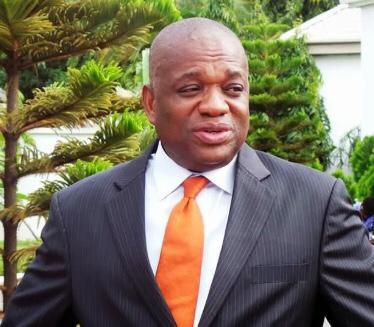There is no Progress without Sanctions
On May 7, 2020, most Nigerians woke up with the shocking news that former Governor Orji Uzo Kalu, who was serving a 12-year jail term for theft of 7.1 Billion Naira, just had his conviction nullified by the Supreme Court, and his case remanded back to the High Court for re-trial.
In ruling in Kalu’s favour, the Supreme Court nullified Section 396 (7) of the “Administration of Criminal Justice Act (ACJA) 2015; legislation that was passed to speed up existing trials, by allowing the original sitting High Court Judge, to return and finish cases they were sitting on, before their elevation to a higher court. Justice Mohammed Idris the judge, in this case, had been elevated to the Court of Appeal.
The curious twist in this matter is that in arriving at its result, the Supreme Court relied on prior cases which included, “Ogbuanyinya V. Okudo, and Bichi V. Shakarau among their authorities. However, a thorough and diligent case-law research in this matter should have unearthed that the above cases were decided before the ACJA was deemed necessary, and passed legislatively as a judicial tool, to speed up hearings and arrive at closure, and ensure that justice is served, for the good of the nation.
A License to Plunder
By ruling to remand this matter back to court for a new trial, after 12 years of diligent litigation, 19 Witnesses, and millions in legal fees by the EFCC, coupled with EFCC haven proven its substantive case beyond a reasonable doubt on the merits, is to reverse the efforts of all Nigerians to tackle corruption effectively.
The Supreme Court is charged with interpreting laws, not to thwart the society’s forward march toward accountability in public office. The Supreme Courts’ failure to be diligent in the interest of Nigeria, and Nigerians, begs the question of whether the Justices have been compromised by Kalu.
READ ALSO: Kano Set To Quarantine 431 Almajiri Children Before Deportation
Judicial economy dictates that litigation expenses and unnecessary complexities should be curtailed as part of the administration of justice, and sanctions are always designed to fit the crime. Sending this case back to the High Court for a new trial, smirks of insensitivity to the nation’s march toward a corruption-free nation, and a bona fide “License to Plunder”, for all the nation’s public officials.
If the Courts will let public officials loose, through minor technicalities, whether they were guilty on the substantive charges or not, then Nigeria has entered a new era, and a “License to Plunder” has just been issued for the nations Officials.
Charles Adeyinka
Email: Charles.em@gmx.com
Charles Adeyinka is a lawyer and political consultant in Nigeria and the United States




 Premier League
Premier League